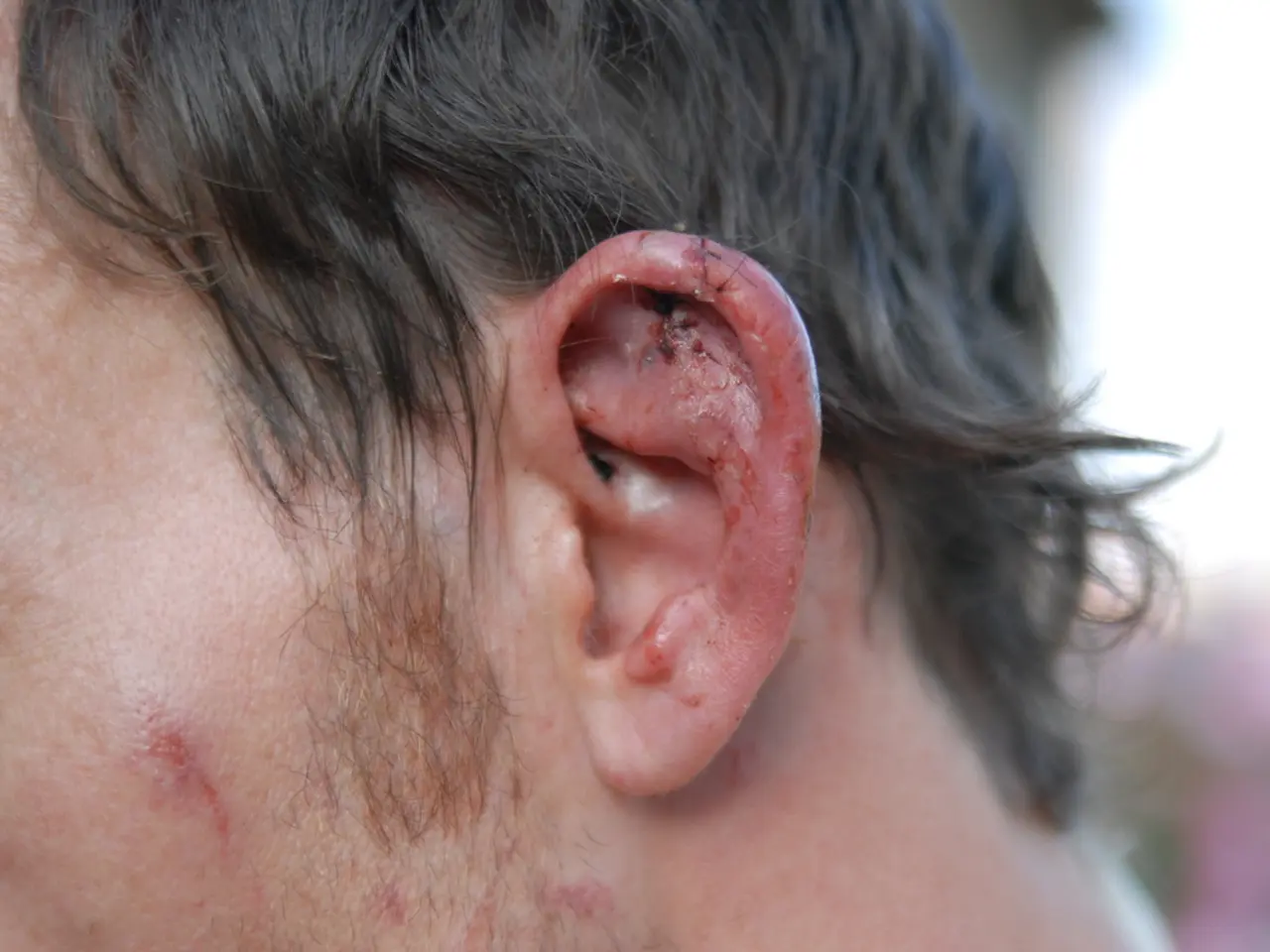Sudden Hearing Loss due to Sensorineural Issues: Key Information to Understand
Sudden Sensorineural Hearing Loss (SSHL) is a medical emergency that requires urgent attention. This condition, characterized by a sudden or rapid loss of hearing, can occur due to various causes, some of which are common while others are less frequent.
The most common causes of SSHL include viral infections, autoimmune diseases, physical trauma, tumors, ototoxic medications, circulatory problems, and neurological disorders. Viruses such as herpes simplex, varicella-zoster (shingles), mumps, influenza, and even COVID-19 can inflame or damage the inner ear or auditory nerve pathways, leading to sudden hearing loss. Conditions like Cogan’s syndrome, systemic lupus erythematosus, rheumatoid arthritis, or autoimmune inner ear disease (AIED) can also cause rapid sensorineural hearing loss. Head injuries, acoustic trauma from sudden explosive noises, benign tumors like acoustic neuromas, certain antibiotics, diuretics, and chemotherapy drugs, and circulatory problems affecting the inner ear’s blood supply can also result in SSHL. Neurological disorders like multiple sclerosis may involve inner ear or nerve damage that triggers SSHL.
Less common causes include sudden pressure changes impacting the inner ear and Ménière’s disease, which can cause sudden hearing loss accompanied by vertigo and tinnitus.
It is important to differentiate SSHL from conductive hearing loss, which relates to blockages or problems in the outer or middle ear (e.g., earwax plugs) rather than inner ear damage.
Early medical evaluation is critical because SSHL can sometimes be reversible with prompt treatment, and identifying the cause guides management. If no cause is found, a large proportion of SSHL cases remain idiopathic despite investigation.
People with hearing loss can benefit from downloading speech-to-text apps on their smartphones to assist with communication. Alongside hearing loss, other symptoms can include a feeling of fullness in the ear, ringing in the ear (tinnitus), and dizziness.
Doctors diagnose SSHL by examining the ear to rule out obstruction and performing a pure tone audiometry test. SSHL typically affects only one ear. If hearing loss is severe or does not respond to treatment, a doctor may recommend hearing aids or cochlear implants to improve hearing.
If you are concerned about hearing loss, it is advisable to talk with your doctor for additional advice and support. The American Speech Language Hearing Association (ASLHA) lists hearing loss organizations and associations where people with hearing loss can seek practical and emotional support. The Hearing Loss Association of America (HLAA) provides educational resources on adjusting to living with hearing loss.
A 2023 study has linked Sudden Sensorineural Hearing Loss (SSHL) to a potential early symptom of ischemic stroke. The study investigated factors associated with stroke-induced SSHL by comparing medical records of individuals who developed sudden ischemic stroke after SSHL with those who did not. Factors associated with an increased likelihood of sudden ischemic stroke following the onset of SSHL include SSHL in both ears, moderately severe to total hearing loss, narrowing or blockage of an artery within the brain, and the presence of certain risk factors for stroke such as high blood pressure, diabetes, dyslipidemia, a history of smoking, a history of alcohol consumption, and a prior history of stroke.
Delaying treatment for more than 2-4 weeks may result in permanent hearing loss. Therefore, if you experience sudden hearing loss, it is crucial to seek medical attention immediately. The Royal National Institute for Deaf People (RNID) provides general communication tips for people with hearing loss, such as making others aware of the hearing loss, asking people to talk face-to-face, asking people to speak clearly, and communicating in quieter spaces.
In conclusion, understanding the causes, symptoms, and treatment of Sudden Sensorineural Hearing Loss is essential for timely and effective management. If you or someone you know experiences sudden hearing loss, prompt medical attention is necessary to preserve hearing and improve the chances of recovery.
Read also:
- Apparition's Significance and its Delivered Messages - as discussed by Sensenmann
- Explored the Popular Health Assessment with a Queue of 100,000 Aspiring Participants - Here's My Unadulterated Opinion
- Hearing impairment condition: Recognizing symptoms and management approaches
- Exploring Recurring Actions in Mature Individuals: An Analysis of Persistent Actions in Adults' Daily Lives








